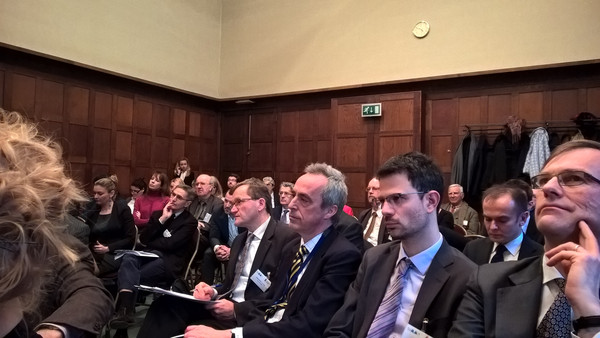
SUMMIT Kick-Off Conference ‘Grasping the European Council – Raising Awareness for a Key Institution’
28-29 January 2016
Working Group A, Thursday 28th January 2016, 17-18.15 pm
Speakers: Joachim Schild, Trier University; Sergio Fabbrini, LUISS School of Government
Rapporteur: Meadhbh Costello, Institute of International and European Affairs
In working group A Joachim Schild (Trier University) and Sergio Fabbrini (LUISS School of Government) examined the issue of leadership and consensus-building in the European Council. The discussion was chaired by Julie Smith (University of Cambridge) and commented on by Giorgio Maganza (Council of the European Union, Legal Services).
Joachim Schild delivered the first address, entitled “Informal Politics, Power Asymmetries, and Franco-German Bilateralism in EMU Reforms”. First, he noted the prevalence of informal bilateral meetings between key Member States before and during recent European Council meetings. He raised the questions of whether this type of informal politics has become more frequent now than in the past, and how it can be explained. He argued that the enlargement of the European Union increased the transaction costs in consensus-building, which as a result, occurs more frequently outside of formal structures. He added that severe time constraints increase the likelihood that informal structures will be used in negotiations. Joachim Schild pointed out that an increase in the use of informal decision-making structures results in information nodal points, such as the President of the European Council and the Heads of State of Government of certain Member States, which benefit from information asymmetries. Finally, he made the point that Member States with issue-specific interests tend to be engaged in a core group of informal decision makers on a particular issue.
Sergio Fabbrini delivered the second address, entitled “From Consensus to Domination: The Intergovernmental Union in a Crisis Situation”. In his address, he argued that the intergovernmental union, which emerged from the Maastricht Treaty, and which the Lisbon Treaty later institutionalized, came under pressure during the financial crisis. He noted that the intergovernmental union is based on voluntary engagement by national governments and that decisions in the European Council are made by consensus-building. He argued that the pressures of the financial crisis created a hierarchical relationship between Member States, which undermined the theory of an intergovernmental union.
A number of issues were raised in the discussion that followed. Giorgio Maganza opened the discussion by emphasizing that consensus in the European Council is easier to achieve, when there is a leader to guide the process. Joachim Schild responded that it is important to clarify who the leader is in power asymmetries, as this may differ between crises.
One participant made the observation that Germany appears to hold a special place in the European Council, and questioned whether this was due to the structure of the European Council, or due to the abdication of leadership by other Member States.
Further to this, participants also highlighted the importance of the Franco German relationship in decision-making in the European Council. Giorgio Maganza commented that the Franco German relationship has been the engine of integration and that there has been no step forward in European integration without Franco German cooperation. Joachim Schild argued that informal power politics in the European Council cannot be limited to the Franco German relationship, and that consideration must also be given to the formation of other subgroups in the European Council.
Another important issue was the role of personalities in informal politics. Linked to this, a participant questioned whether domestic politics influence decision making in the European Council. In response to these issues, Sergio Fabbrini stated that informal politics does not happen in isolation and that the structural context of the institutions gives political leaders the incentive to act in a certain way. Joachim Schild noted the difficulty in capturing the role of personalities in informal politics.
Having identified the major issues in leadership and consensus-building in the European Council, Julie Smith concluded the discussion.


